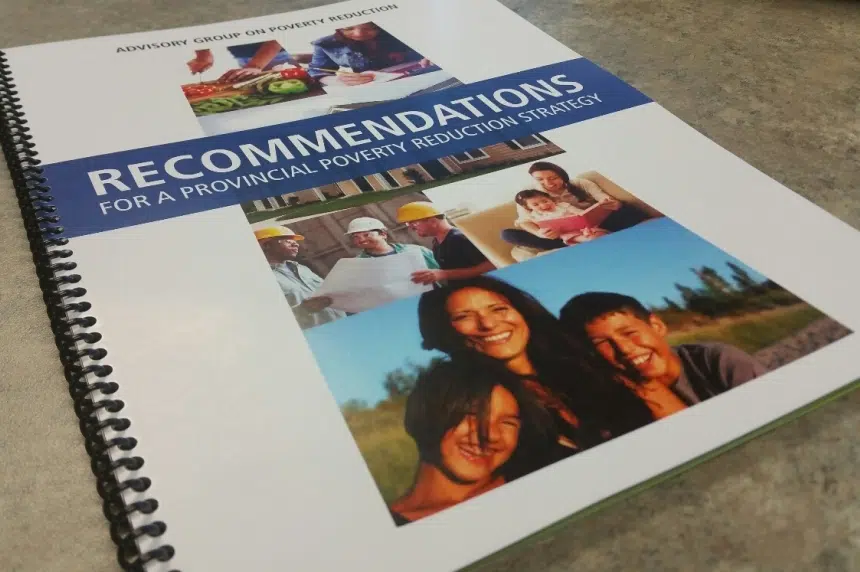The 11-member Advisory Group on Poverty Reduction was put together by the province in late 2014. They were asked to provide advice for a provincial poverty reduction strategy.
The list of recommendations handed to Social Services Minister Donna Harpauer on Monday was extensive, containing some 36 different items.
The recommendations were broken down across six areas: housing and homelessness, early childhood development, education and training. employment, health and food security, and income security.
Among the items the panel asked for:
-
Incentives for companies to build affordable housing units
-
Improved access to nutritious food in inner-city areas and in remote communities
-
Emphasis on closing gaps in health and education between aboriginal and non-aboriginal people.
The panel’s report came with a stated goal of cutting poverty in half by 2020.
Harpauer acknowledged that it could be difficult to find money for new programs in the current budget cycle. She noted that provincial coffers have been hammered this year by low oil prices and a huge bill for fighting wildfires.
While she wasn’t willing to commit to the 50 per cent reduction in poverty over 5 years asked for by the report, Harpauer said she wants the province’s strategy to still call for some sort of hard target.
“I think we do need to set goals Even if you don’t achieve them, you have greater efforts moving towards them,” she said.
With many items involving areas of federal responsibility, such as education and health care on reserves, Harpauer said Ottawa will have a role to play.
She noted that the province has been willing to provide money in certain specific cases for on-reserve projects, but couldn’t be expected to shoulder too much of the responsibility.
“To jump in and take over, no we’re not prepared to do that. We have fiscal restraints. So we just keep trying to work with Ottawa and trying to get them to contribute more in more areas,” she said.











